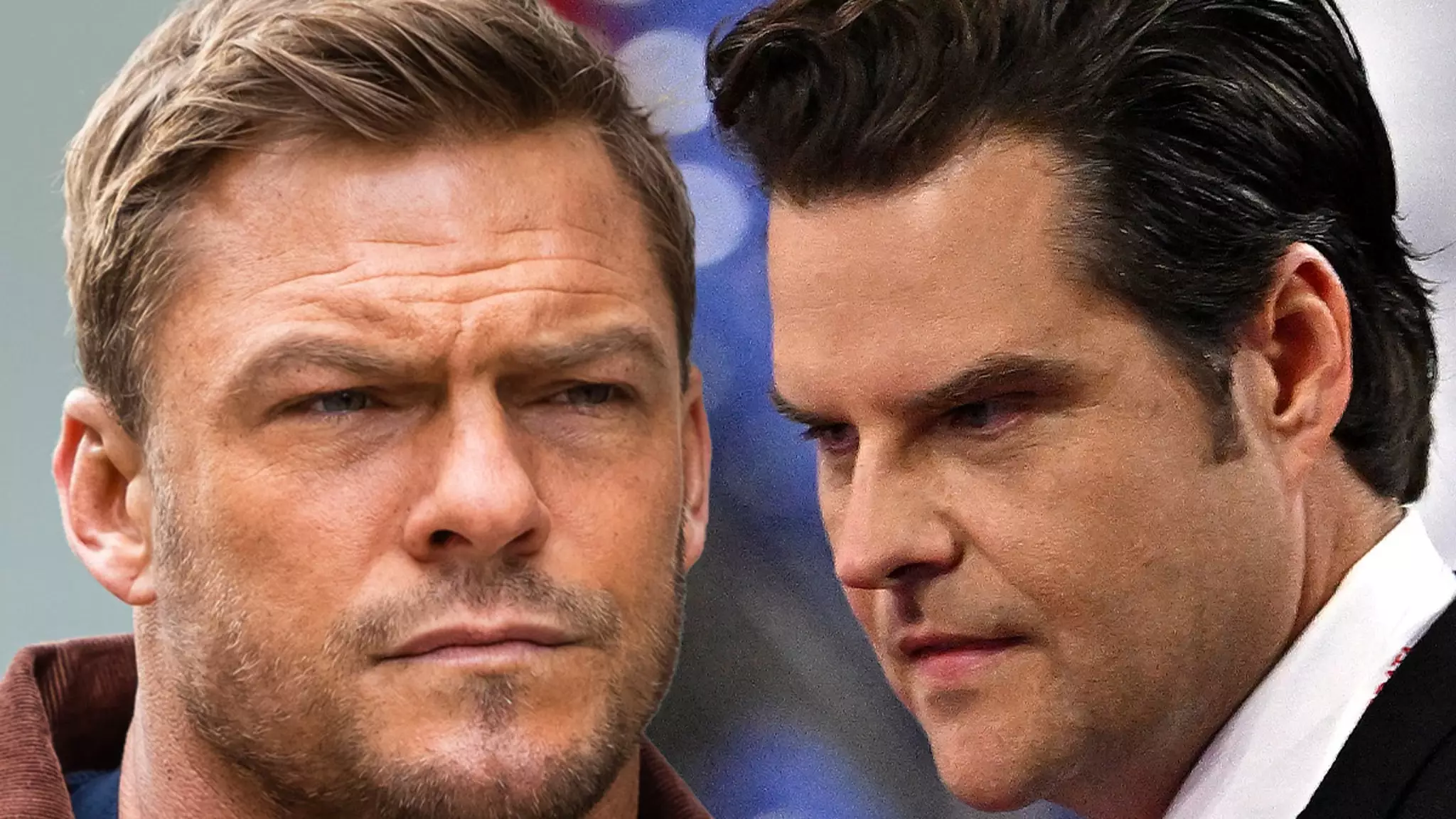In a recent interview with GQ, Alan Ritchson, the star of the hit series “Reacher,” candidly expressed his disdain for his childhood classmate, Matt Gaetz. This unexpected fallout highlights the complexities of personal relationships that evolve in tandem with political careers. Ritchson’s remarks come in the wake of a history intertwined with Gaetz, both originating from Niceville, Florida. However, what once may have been seen as youthful camaraderie has transformed into a stark ideological divide, underscoring how childhood friendships can fracture under the weight of contrasting values and public persona.
Ritchson’s disdain for Gaetz is evident as he openly described him as his adversary. He expressed disbelief that the residents of Florida’s panhandle would continue to support someone whose controversial actions and promises have become public knowledge. This commentary raises essential questions about voter accountability and the criteria by which constituents choose their representatives.
Ritchson’s criticism doesn’t stop at personal invective; it points to a broader discourse on the intersection between celebrity and political discourse. In today’s environment, celebrities wield significant influence over public opinion. Ritchson’s contempt for Gaetz reflects a growing trend, where entertainers who possess large platforms feel emboldened to voice their political stances. Whether it results in tangible political change remains to be seen, but it is evident that public figures like Ritchson see the importance of calling out what they view as unethical behavior.
Interestingly, Ritchson contemplated a possible political ambition to counteract figures like Gaetz. However, he questioned his own ability to navigate such a duplicitous field, expressing doubt about his capacity to engage in politics—an admission that may resonate with others who similarly contemplate public service amid the ethical quandaries present in today’s political landscape.
While the Gaetz-Ritchson feud garners headlines, the interview delved deeper into Ritchson’s life—featuring poignant discussions about drug use, mental health, and the nuances of fatherhood. Despite the seriousness of these subjects, it is clear that Ritchson’s outspokenness on Gaetz elicits a more passionate response. This juxtaposition reveals the turbulent emotions often felt by individuals when confronting issues of morality, personal beliefs, and the desire for accountability among public figures.
Moreover, Ritchson’s platform serves as more than a means of expressing discontent; it invites dialogue surrounding the ethics of political leadership and societal expectations of public servants. By harnessing his celebrity status, Ritchson embodies a growing movement of individuals pushing for systemic change, one conversation at a time.
The conversation surrounding Gaetz is emblematic of a larger struggle with integrity in politics. Ritchson’s fiery comments not only reflect personal sentiment but also spark a greater discussion regarding the moral fibers that should ideally underpin political representation. As voters grapple with their choices, they must consider the implications of such support on the societal landscape. Do we enable questionable behavior by merely casting our votes without accountability? Ritchson’s passionate denunciation serves as a reminder of the consequences related to our electoral decisions, urging the electorate to carefully consider the character and actions of those they choose to represent them.

